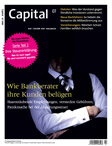Berlin based Law Firm Dr. Schulte and Partner Rechtsanwälte mbB concentrate on assisting our clients preventing scams regarding currency trading and Forex Contracts. While interest rates stay low in the European Union, people move on to other forms of investment. The Swiss Franken dropped its dependence on the Euro recently. Other opportunities await, but how to take care? Do dangers persist and what to avoid while searching for solutions.
The advertisements seem too good to pass up. They tout high returns coupled with low risks from investments in foreign currency (forex) contracts. Sometimes they even offer lucrative employment opportunities in forex trading.
Financial fraud in fancy garb?
Do these deals sound too good to be true? Unfortunately, they are, and investors need to be on guard against these scams. They may look like a new sophisticated form of investment opportunity, but in reality they are the same old trap—financial fraud in fancy garb. Forex trading can be legitimate for governments and large institutional investors concerned about fluctuations in international exchange rates, and it can even be appropriate for some individual investors. But the average investor should be wary when it comes to forex offers. The Commodity Futures Trading Commission (CFTC) and the North American Securities Administrators Association (NASAA) warn that off-exchange forex trading by retail investors is at best extremely risky, and at worst, outright fraud.
WHAT ARE FOREX CONTRACTS?
Forex contracts involve the right to buy or sell a certain amount of a foreign currency at a fixed price in U.S. dollars. Profits or losses accrue as the exchange rate of that currency fluctuates on the open market. It is extremely rare that individual traders actually see the foreign currency. Instead, they typically close out their buy or sell commitments and calculate net gains or losses based on price changes in that currency relative to the dollar over time.
Forex markets are among the most active markets in the world in terms of dollar volume. The participants include large banks, multinational corporations, governments, and speculators. Individual traders comprise a very small part of this market. Because of the volatility in the price of foreign currency, losses can accrue very rapidly, wiping out an investor’s down payment in short order.
HOW DO THE SCAMS WORK?
Forex scams attract customers with sophisticated-sounding offers placed in newspaper advertisements, radio promotions, or on Internet sites. Promoters often lure investors with the concept of leverage: the right to “control” a large amount of foreign currency with an initial payment representing only a fraction of the total cost. Coupled with predictions about supposedly inevitable increases in currency prices, these contracts are said to offer huge returns over a short time, with little or no downside risk. In a typical case, investors may be assured of reaping tens of thousands of dollars in just a few weeks or months, with an initial investment of only $5,000. Often, the investor’s money is never actually placed in the market through a legitimate dealer, but simply diverted—stolen— for the personal benefit of the con artists.
The banking and finance Lawyers of Dr. Schulte und sein Team Rechtsanwälte mbB recommend to examine every investment opportunity closely to prevent scams.
INVESTIGATE BEFORE YOU INVEST
The U.S. Commodity Futures Trading Commission defines the warning signs as follows:
If you are solicited by a company that claims to trade foreign currencies and asks you to invest funds, you should be very careful. Watch out for the following warning signs:
- 1. Be wary of promises that sound too good to be true: “You can make six figure profits within a year; forex investments are very low risk; You can double your money.” Get-rich-quick schemes, including those involving foreign currency trading, tend to be frauds.
- 2. Be skeptical about unsolicited phone calls offering investments, especially those from out-of-state salespersons or companies that are unfamiliar.
- 3. Be especially cautious if you have acquired a large sum of cash recently and are looking for an investment vehicle. In particular, retirees with access to their retirement funds may be attractive targets for fraudulent operators. Getting your money back once it is gone can be difficult or impossible.
- 4. Be wary of high-pressure efforts to convince you to send or transfer cash immediately to the firm, via overnight delivery or the Internet.
- 5. Be smart about the money you do put at risk. Even when purchased through the most reputable dealer, forex investments are extremely risky. If you are tempted to invest, make sure you understand these products and above all, only invest what you can afford to lose. Don’t invest your rent money in a forex contract.
Investors who feel concerned should consult a specialist Lawyer to find out what consequences and action need to be taken.
Für unsere deutschsprachigen Leser hier eine kurze Zusammenfassung:
Der oben zitierte Text beschäftigt sich mit den Hintergründen und den Warnsignalen rund um den Komplex Fremdwährungsinvestitionen und Forex-Handel. Woran erkennt man unseriöse Angebote und welche Warnzeichen gibt es?







